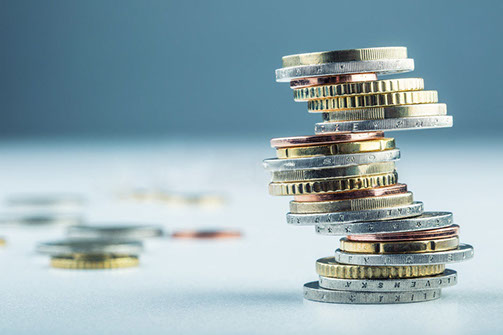






"An investment in knowledge pays the best interest"
"An investment in knowledge pays the best interest"
"An investment in knowledge pays the best interest"
"An investment in knowledge pays the best interest"
"An investment in knowledge pays the best interest"
"An investment in knowledge pays the best interest"
"An investment in knowledge pays the best interest"
<
>
BLOG

JAN
10
2017
Poverty Is Only
One Pay-cheque Away
It's a shocking reality that for most people it only takes one pay-cheque for them to plunge into poverty. If you were to lose your job, for how many months would you be able to take care of your basic expenses such as rent, car payments and groceries, etc.
How many days or months you can survive without the monthly pay-cheque you receive, if all of a sudden you lost your job? How long would you be able to survive with the money you have? Many South Africans don't have emergency savings such as R10 000 for an emergency visit to the hospital or other emergencies.
In the current economy we live in definite job security is a thing of the past. With business going out of business over night, while other companies keep on laying off workers in greater numbers uncertainty has become a norm. Therefore having a secondary form of financial security has become more relevant than before.
The first step would be to add up all the expenses you incur per month, these will be your living expenses. Then figure out which of those expenses you wouldn't be able to live without, i.e. rent, electricity, food etc.
Example
Alice earns a monthly net salary of R24 000
This is what her monthly expenses look like:
1. Bond
2. Car payment
3. Insurance
4. Water & Electricity
5. Medical Aid
6. Fuel
7. Groceries
8. Entertainment
9. Clothing
TOTAL
Alice has R3800 left over every month which she saves.
The next step is to calculate how much money you have in the bank account and in the form of assets that can be sold for cash such as stocks/shares (from the stock market). Alice has R17000 in a savings account and R15 600 in Old Mutual Shares. In total she has R32600. If Alice were to lose her Job today she would be able to pay her expenses for just over one and a half months, provided she maintains her current standard of living. If she were to cut back on unnecessary expenses she would be able to stretch it to just over two months. It would take Alice two months to plunge into poverty, she would be unable to pay for her car and apartment. In the following months thereafter the banks would come to put her apartment on foreclosure while her car is repossessed.
It's a scary thought to think it only takes a month or two to lose everything you've worked so hard for. It's crucial that as a worker you have a backup plan in-case the worst were to happen.
RULES TO LIVE BY TO SURVIVE
If you so happen to lose your job, the best thing you can do to stay afloat and minimise your expenses is to:
- Make sure you have registered for UIF (unemployment insurance Fund) prior to losing your job, and you have been paying for it every month. Alert the UIF that you have lost your job. UIF gives short term relief to workers who have become unemployed. The UIF was set up by the government to financially assist people who have lost their jobs, as well as those who are temporarily unemployed due to illness, pregnancy and while adopting a child under the age of two years.
- Total contributions are calculated at two percent of your gross earnings up to R12 478 a month. There are five different types of benefits you can claim from the UIF. They are: Unemployment benefits; illness benefits; maternity benefits; adoption benefits; and dependant benefits. You can then claim benefits for a maximum of 34 weeks 238 days), depending on how long you have contributed to the UIF. Generally UIF pays out 38% of your monthly salary. Terms & Conditions apply
- The UIF also provides benefits for families after the breadwinner dies. Anyone who is employed and who works for 24 hours or more a month – including domestic and farm workers – is required to contribute to the fund.
- Sell your house if you have bought it on bond, before they reposes it or put it in foreclosure. This way you can at-least regain some of the money you spent on it, rather than to get blacklisted and owe hundreds of thousands of Rands. After your house has been sold use the proceeds to settle the outstanding amount you own.
- Sell your car or trade it in for a cheaper and fuel efficient car. If you car consumes more that 7litres per 100km, get rid of it. It's an unnecessary expense you don't need.
- If you have paid your bond account in advance under no circumstances should you withdraw any amount of money from your bond account. Once most people start withdrawing funds from their bond account because times are tough, they often don't stop until the funds are drained. You'd rather go broke and know you still have a roof over your head.
- Cut unnecessary expenditures
- Look for a new job or if you are brave enough start a new business!
- Try part-time work to stay afloat
As a rule make sure your bond or rent doesn't cost you more than a third of your salary.
R7500
R5100
R900
R600
R1300
R1800
R800
R700
R1500
R20 200
Join The Mailing List
Receive the latest updates on personal and business finance
Copyright 2017 equinoxe.co.za
Created By Colour Flutter
